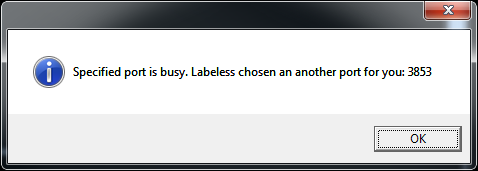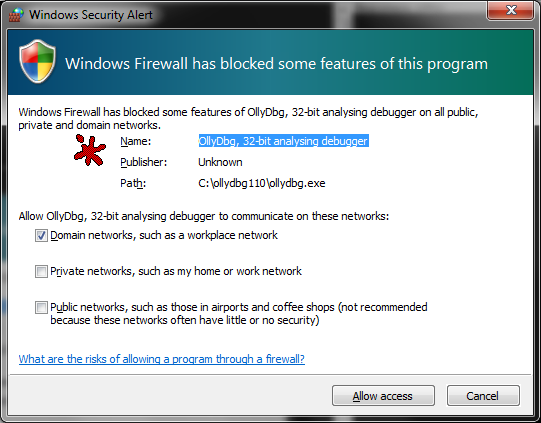Contributed By Check Point Software Technologies LTD.
1. Seamless synchronization of labels, function names, comments and global variables (w/wo demangling)
- Synchronization modes
- On demand
- On rename (update on-the-fly)
- Supports image base-independent synchronization
It can be useful in the following cases:
- When debugged process has extracted/temporary/injected module which doesn't appear in modules list
- When it doesn't have a valid PE header
- When it has corrupted import table, etc.
- When it contains unpacked memory regions inside a binary, you can easily merge these new memory regions with the ones that are already present in your database
- When reconstructing chain of memory chunks which are used by malware (and not only, if you know what we mean) so that the picture of its behaviour is complete
We support the following list of debug backends for now:
- OllyDbg 1.10
- DeFixed 1.10 (FOFF's team mod)
- OllyDbg 2.01
- x64dbg (x32, x64)
Labeless is a multipurpose IDA Pro plugin system for labels/comments synchronization with a debug backend, with complex memory dumping and interactive Python scripting capabilities. It consists of two parts: IDA plugin and debug backend's plugin.
Labeless significantly reduces time that researcher spends on transferring already reversed/documented code information from IDA (static) to debugger (dynamic). It saves time, preventing from doing the same job twice. Also, you can document and add data to the IDB on the fly and your changes will be automatically propagated to debug backend, even if you will restart the virtual machine or instance of debug backend will crash. So, you will never lose your research.
This solution is highly upgradable. You can implement any helper scripts in Python on debug backend's side and then just call them from IDA with one line of code, parsing the results and automatically propagating changes to IDB.
We can take that memory region and put it in the IDB, fixing imports 'on-the-fly', using debug backend's functionality. No more need in ImpRec or BinScylla, searching for the regions in memory that contain the real IAT, because we get that information dynamically from the debugged process itself.
As a result we have a lot of memory regions that may represent even different modules (if the unpacking process if multistage) with valid references between them, which gives us a possibility to build a full control flow graph of the executable. Basically, we will end up with one big IDB, containing all the info on the specific case.
- Presentation
- Slides
- Dumping multiple injections into a single database video on YouTube
- Python scripting video on YouTube
- Basic labels sync video on YouTube
- Labeless setup on Win10 x64 (with x64dbg)
- Resolving APIs dynamically with Labeless & OllyDbg2
- Resolving APIs dynamically with Labeless & x64dbg
If you want to use both x86 and x86_64 targets, then you should do the following steps for each python distro.
- Set up Python 2.7 (x86/x86_64)
- Copy
deploydirectory to target machine, where you want to use a debugger backend - Set up
protobuf 2.6.1using the following commands:
cd c:\deploy
c:\Python27\python.exe setup_protobuf.py- Install
labelesspython module, there are two ways to archive that, the first one is to use PyPI in case you have an Internet connection on the debug machine:
pip install --upgrade labelessIn case you don't have an Internet connection, you could install prebuilt module from release archive:
cd c:\deploy
c:\Python27\Scripts\pip.exe install labeless-1.1.2.65-py2.py3-none-any.whlNote: If you have already used Labeless before and you want to update it, don't forget to reinstall python module each time you have new release
- Configure your debugger backend: set up
pluginsdirectory
Labeless supports Windows and Linux (starting from 6.9.5 version of) IDA PRO. Labeless handles only PE/AMD64 binaries. Labeless requires IDAPython plugin python.[plw|p64|plx|plx64] (it ships with IDA PRO, but make sure it works well).
There are plugins:
IDA[XX]\plugins\labeless_ida.plw - for IDA for Windows, handles 32-bit binaries (used with idaq)
IDA[XX]\plugins\labeless_ida.p64 - for IDA for Windows, handles 64-bit binaries (used with idaq64)
IDA[XX]\plugins\labeless_ida.plx - for IDA for Linux, handles 32-bit binaries (used with idaq)
IDA[XX]\plugins\labeless_ida.plx64 - for IDA for Linux, handles 64-bit binaries (used with idaq64)
Copy Labeless plugins to your IDA's plugins directory, for example c:\IDA68\plugins
-
In case you have IDA for Windows, please, use
.plw/.p64plugins. -
If you have IDA for Linux, please, use
.plx/.plx64plugins. Also, copyIDA[XX]/libprotobuf.so.9to your IDA home directory (for example/home/alex/ida695/), it's an important library.
You may find prepared debugger in the following directory OllyDbg110. (Note!: Don't forget to set up debugger's plugins directory).
Copy DeFixed110\plugins\labeless_olly_foff.dll to DeFixed plugins directory (Note!: Don't forget to set up debugger's plugins directory)
You may find prepared debugger in the following directory OllyDbg201. (Note!: Don't forget to set up debugger's plugins directory).
You may find prepared debugger in the following directory x64dbg.
- Start debug backend (debugger) and check for Labeless item presence in the Plugins menu. If there is any problem, then check Olly's log window for details. Open the log window and check for
LL: ok, binded at <IP>:<PORT>message, its presence means that debug backend-side plugin is initialized successfully. Note: if you start many debuggers, you may see that the following message appears
Also, you may see the firewall alert
If you want to access the debug backend from another computer, you should allow the backend to listen by this dialog or manually.
- Start working with existing IDA database or use
Labeless->Load stub database...from the menu - Open Labeless settings dialog using any of the following actions:
- menu
Edit->Plugins->Labeless - main menu
Labeless->Settings... - hotkey
Alt+Shift+E
- menu
- Enter IP address and port of the guest machine (where debug backend is set up), then click on 'Test connection' button
- If IDA displays the message
Successfully connected!, then configuration is done correctly.
- Set up Python 2.7 (x86/x86_64)
- protobuf 2.6.1
- Visual Studio 2010 + Qt 4.8.4 (built with "QT" namespace) - required by IDA's 6.8 plugin (to proper use IDA's Qt). You can configure Qt by yourself with the following command:
configure -platform win32-msvc2010 -shared -release -no-webkit -opensource -no-qt3support -no-phonon -no-phonon-backend -opengl desktop -nomake demos -nomake examples -nomake tools -no-script -no-scripttools -no-declarative -qtnamespace QT
- Visual Studio 2015 + Qt 5.4.1 to build IDA's 6.9 and debug backend plugins. You should build Qt 5.4.1 from sources. Do the following steps to do that:
- Download sources of Qt 5.4.1 from http://download.qt.io/official_releases/qt/5.4/5.4.1/single/
- Check this article out to set up Qt 5 requirements
- Check the Hex blog about compiling Qt 5.4.1, grab the patch and apply it on Qt5 root dir. Then compile Qt 5
- Set up Qt VS-Addin
- If you want to enable synchronization of labels (names) and comments from IDA to Olly you should check 'Enable labels & comments sync' in Labeless settings dialog in IDA. There is one required field called 'Remote module base', which should be set to the current module base of the analyzed application. You can find out that information in the debugger
- Select needed features, like Demangle name, Local labels, Non-code names
- Select comments synchronization type:
- <Disabled>
- Non-repeatable
- Repeatable
- All
Repeatable - are comments, which IDA shows in any referenced place.
- If you want to sync labels right now - press 'Sync now' button. Labeless will sync all found names in your IDB with Olly. Settings dialog will be automatically closed, while saving all settings
- Also, you may use
Labeless->Sync labels nowfrom IDA's main menu - If you want to customize settings for IDADump engine, do it in the 'IDADump' tab.
- To save changed settings, click on 'Save & Close'
- If you enabled 'Enable labels & comments sync' option, then Labeless will automatically synchronize all the data on any rename operation in IDA
Issue with Python 2.7.11 is described here, so avoid usage of this version. The latest stable supported version is 2.7.10.
- Q: Labeless for x64dbg x32 is works, but x64 doesn't. Why?
- A: Please, recheck that you have installed protobuf and 'labeless' module for Python x64






